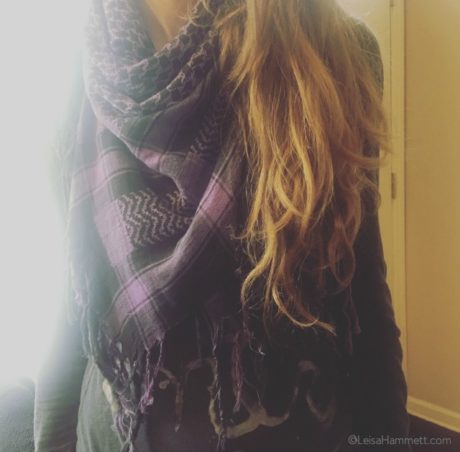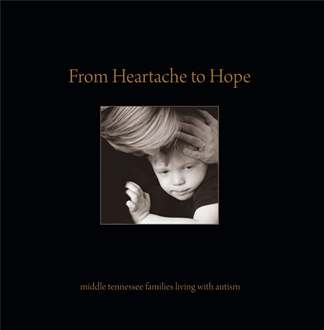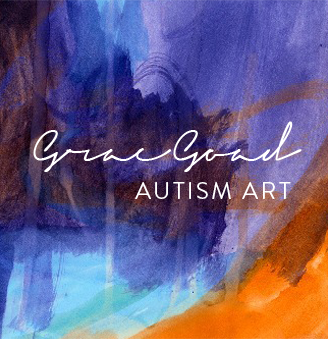
“I am invisible.”
Silver-haired, attractive, the woman seated in the back self-identified as a 60something. Her pain was familiar. It is familiar to most every “woman of a certain age.”
The occasion of her comment was midweek at a “Men and #METOO Workshop“ at one our local Unity churches. The brilliant speaker, sociologist Kalai Muglin, Ph.D., asked the men and then the women gathered what they struggle with most about being their particular gender.
I got it.
I first heard about women becoming invisible by a certain age from my friend June. I’d just turned 40, she had merged into her 50s. I argued with her: “But you are attractive, you’re smart, you’re….”
“It doesn’t matter. It doesn’t matter. It doesn’t—with growing emphasis and volume she continually interrupted me.
My time came within a three or four years. The odd sensation many women experience of realizing you are no longer seen by younger men. They pass by you as if you do not exist. And for that matter, younger women and older men also frequently perpetrate the cultural insult of ignoring aging women. Writing or speaking this statement feels vulnerable. Shamed as a little girl—to not think too much of myself, but then given conflicting messages about my looks—it still feels arrogant—and wrong—to acknowledge aloud a positivity about my appearance or to even dare talk about such a “frivolous” subject. (Keeping reading. I *know* my or any woman’s worth is not based on male acknowledgement.)
“INVISIBLE?” The African American woman of flawless skin and sporting a spunky tam seated in front of our group Wednesday night turned around to face us, and gave a mocking laugh. “You talk about feeling ‘invisible’ at a certain age? As a black woman I’ve lived as an invisible all my life!”
Oh.
[Palm slap]
Yeah.
Flash forward to Friday afternoon. I’m bantering with the gorgeous blond 50something manager of the salon where Grace gets her hair cut. I joke that my upkeep is getting more expensive as I age. She launches into a self-loathing attack about the parts of her face that are drooping. I shut her up. Nope. Not going there, I said. It’s a part of aging. The alternative is a coffin. We laughed.
Two hours later, I’m in a boutique clothing store dressing area. While I try on a few sale items, Grace is seated in the stall playing with her iPad. We’re the only ones in this region of the store until two loudly conversing women enter. When one learns her friend is not trying on clothes, she asks her to stay with her: “…so you can laugh at me as I try on things.”
I remember how I put my friends through that tedium when I was in my late 40s. I’d gained weight from emotional eating in an attempt to soothe my then sad mother’s soul the first few years after my daughter was diagnosed with autism. And my curly hair was uncontrollable with the new crop of wild gray that had taken up residence. I wish one of them had shushed me like I did my friend at the salon. For a handful of years, I was plain annoying in my tirades. I irritated my own self until I learned to shut up the mean, destructive self-deprecation. It was toxic to me, and as I’d only learn two decades later, it was toxic to my friends, too.
Gratefully, in the last two decades, a lot of awareness has gone down in culture—but not near enough. Not enough to awaken all of us to our own unique beauty and that it’s really not about the outside but the inside. Heh. Tell that to culture. But as our speaker said Wednesday night: We want to be truly seen by each other. We need to *see* each other. Look into each other’s eyes and see each other’s beauty. What we are seeing is the divine essence of which we are all created, he said. I agree.
As I walked away from the three-way dressing room mirror at the end of the hallway outside of the dressing stalls, having rejected the pair of peachy-pink frayed denim pants as unflattering my waistline, I complimented the woman trying on clothes. “That looks really good!” She’d donned a cream shawl. It draped beautifully on her. “Thank you,” she said, quickly adding, “It covers my butt.” Re-entering my stall and without turning to look at her, I retorted, deadpan: “Your butt looks *fine!*”
Grace and I were meeting my new boyfriend, Randy, for dinner. The clock was ticking, and I was on a mission. I head to the sales rack at Lululemon. There’s a handsome young 20- 30-something expressionless male salesperson standing in the area, seemingly watching us as we approach. I look back at Grace and she’s making some odd gesture, rapidly rubbing and clapping her hands together. In retrospect, I’m not sure if I heard her making that noise and turned to look at her. If I turned to confirm she was following. Or, if I saw the man’s line of sight was on her.
Or, was the man’s sight beyond me as if I was invisible?
I quickly found a top that would match an existing pair of work out capri’s I wear to Nia classes. Nothing was ever said to me to acknowledge me, a customer, in his presence. I take the top into the dressing room, face the mirror and hold it in front of me. It’s pretty obvious it’s not going to fit my physique, which is not 20something, hard body nor primed for a sliver of belly bearing. I decided to leave it in the stall and look in the front part of the store for an alternative. As we exited the dressing room, I see the salesman approaches a younger woman and asks if she needs assistance. They chat briefly, aimbly about what she’s seeking.
Growing pissed, I’m already in a debate with myself: Do I dare say something about how I perceive I’m being treated, do I walk out, do I say nothing, do I stomp up to the manager up front? [Nope, don’t do that, I coach myself on the later strategy.] Can I say something that will be heard? Is this my imagination? Could there be another explanation? Was he uncomfortable in the presence of my autistic daughter? Was he incredibly shy?
I chose the semi-low route and rapidly exited the area and said to Grace, within earshot of him, “I guess we’re being ignored. Let’s go look for a top out here.” I saw from the corner of my eye that he seemed to have heard me. Still no offer to help. But the young black woman working the front of the store did stop and ask if she could assist me and pulled several tops for me to try on. I flipped through the various styles and colors, attempted to envision if they’d go with my maroon capri’s. Still no offer to help from the man still standing and facing my direction. Still, no acknowledgement of our presence.
Returning to the dressing room, I dared to try on the first top. There was, indeed, a sliver of belly baring, plus gaping holes on the side exhibiting a 13-year hiatus from strength training following a couple of back and shoulder injuries. I’m not a hard body. That was obvious. The young man, still standing in the small area, also silently bore witness. *I’m not going to presume his thoughts. In reality they would not be his thoughts but what I would be telling my own self about my own body and projecting upon and into his silence.*
I did decide to speak up before I left the store. As I approached the exit, the young woman who’d waited on me asked if I’d found a top and I told her no. And then I said, “I don’t like being invisible. I know there’s many possible explanations of what could have happened in that dressing area, but I should have been acknowledged and that never happened. I am of a certain age and I know that makes me invisible to some. But in a retail setting, I still need to be seen by salesclerks.” And, as I left, I said: “I’m somebody’s mama.” She apologized a third time. I thanked her for hearing me.
I’m not sure saying “I’m somebody’s mama,” made sense. It came from a circulating thought I’ve had for sometime about how men treat women. When women are subjugated by men, do those perpetrating men ever stop to think about their wives, girlfriends, daughters, sisters, mothers, etc.? Would they treat the women in their intimate lives that way? Unfortunately, as I know all too well, too often—and very often without them even realizing it, because misogyny is so ingrained—men do treat their female loved ones as objects void of feeling, intellect, rights and personhood. Sigh.
In my delivery to the salesclerk, I attempted to not appear angry, (I’m not sure I ever pull that off effectively,) and certainly not at her. She apologized a couple of times, stating she was sorry for my experience. I left and met my beau at the nearby restaurant within walking distance. As I approached the table he’d chosen for us, placing our our bags and coats on a extra chair, I informed him: “I’m pissy right now.” “You’re feeling pissy right now?” he said back to me with curiosity and with no judgement—because he’s super smart, sensitive and skilled that way. I gave him a quick kiss and escorted Grace to the restroom.
Back at the table, we got settled, ordered drinks and apps and I told him what happened. We unpacked it a bit. I told him I always felt guilty for speaking up like that. I’m never quite sure if I should say something. If I’m coming across and or seeming bitchy. I was well aware I could be projecting something that was not there, that there was a myriad of possible reasons why the clerk was non-responsive, including, possibly having Asperger’s syndrome.
Randy helped me see that the Lululemon incident was the proverbial straw that broke the camel’s back. First the discussion Wednesday night about invisibility. Then the manager at the salon. Then the woman in the dressing room. And then my experience of feeling ignored in the store. I was sensitized, in the moment, to the criticisms both that women unfairly place upon their appearances and that culture also unfairly projects onto us. But that, in the end, the experience was about me. I’m responsible for both my perceptions and my reactions. And, as I write this already ghastly long blog post, I realize, I’ve still not completely unpacked what got triggered in me.
As we nibbled on a vegetable platter, I asked about the meetings my love had that morning with his colleagues. He was explaining the complicated arrangement they’d made for equity sharing in the company they were founding when, midway, I had a sudden aha. When he finished, I said: “I was listening. I just had an ‘aha’ while you were talking. He half-chuckled: “I saw that look come over your face.”
While attempting to understand the complexities of the business deal he’d was explaining, I realized my faux pas. I’d just told a young black woman that I felt invisible. He got it and added that he imagined in a high-end fitness wear store in the city’s poshest county, formed because of white-flight, she may frequently feel invisible. He suggested that maybe I return and say to her, “I’d like to apologize to you. I don’t want to presume anything….I realized in saying I felt invisible, that I was possibly insensitive to you because of what you may have experienced as a black woman in our culture.” I wasn’t sure if I’d make it back to the store before closing. Randy said that if I didn’t, my apology was my intent to talk to her.
I did make it back to Lululemon before closing. And, I found the young woman. The young man still bore sentinel within viewing distance. I can’t say that I got the words out in the best manner. She first replied that it was okay. And then she seemed to get what I was saying and thanked me for saying it and coming back to talk to her. I’m not writing this because I think I did anything noble. *We all need to be having these conversations with each other when we realize our insensitivities to each other. It’s not easy. It’s uncomfortable. But it’s the healing vulnerability we all need in our society.*
Back to female deprecation. In the many ongoing discussions in our current cultural deconstruction, I’ve become acutely aware of two things:
When women criticize our or other’s appearances, we are buying into the same ol’ patriarchal narrative. *And, we are turning, then tossing the key from the lock of our own bondage. We are aligning with and joining in with patriarchal forces of our own oppression.*
When one woman criticizes her appearance before another woman or a group of women, (nearly) every woman’s first natural response is a spark of insecurity about their own appearance—her weight, her complexion, how they look in their clothes that day….
We have choices. We have choices about how we see ourselves. How we see others. To call out the shit of patriarchy (hopefully in a way we can be heard. I’m not sure I succeeded yesterday.) And to call out our own shit that takes up too much space in our heads. We can choose to not buy into our worth as measured by our looks. And we can choose not to buy into a patriarchal-cultural critique of ourselves, further perpetuating our own bondage.
Damnit, aging is difficult. It just is. For a myriad of frustrating reasons. But as we age, we also help underscore the current demeaning and destructive narrative or write a new one on the beauty, riches and rewards of aging as women. Will you join me in the vulnerable authentic admission of this difficult leg of the journey; in the celebration of all that is so wonderful about it and in the rewriting, telling and viewing of it; and in how we can more fully love, embrace and accept ourselves in the right here and right now? I hope so. Thank you. x,L





Leisa, Wonderful post! I commend you on your self reflection and your apology to the young black woman. Try as hard as we can to love and appreciate ourselves and who we’re becoming, at every age, coming to terms with aging sucks. I will be 70 this summer! Part of me thinks that’s not possible! Until a few months ago I thought I was holding up pretty well. I work out three days a week, always have, care about my appearance. On the other hand if my hair gets any thinner, I may look at wearing a wig permanently, plus I haven’t had Botox or had any “work done.” I feel like all my trips to Hell and back have decided to manifest themselves on my face at the same time, and it’s flipping depressing! No amount of no alcohol or lots of sleep makes it better. In addition to being invisible, I don’t even feel attractive anymore. On to Lululemon… I met the Sr VP of Mktg for Lululemon a number of years ago at SXSW in Austin. She was beyond rude! She told me women over 45 were no longer relevant. RELEVANT!! She turned and walked away and left me standing there, talking to myself. I swore I’d never to go another Lululemon store so help me! Last summer, looking for something other than cropped workout pants, I relented and went to Lululemon. Your story is my story with the young man and a store full of sales associates who ignored me. After searching the racks, when I asked one of them if they had any ankle length pants, she pointed to the other side of the store and never said a word. Not one word. When I said which rack, she just pointed again and walked away. I WILL NEVER EVER GO INTO LULULEMON AGAIN! I’m sorry you had this experience, too. xoxox, Brenda